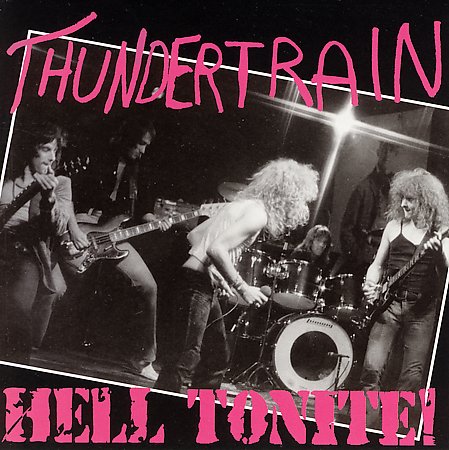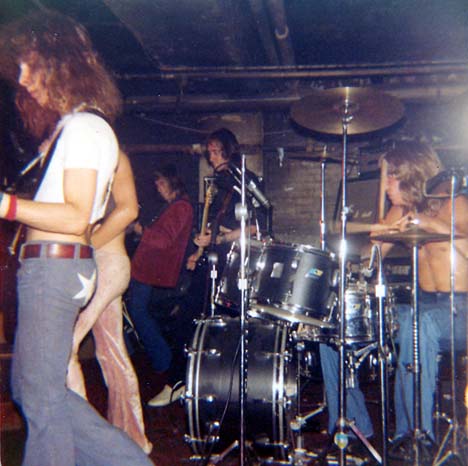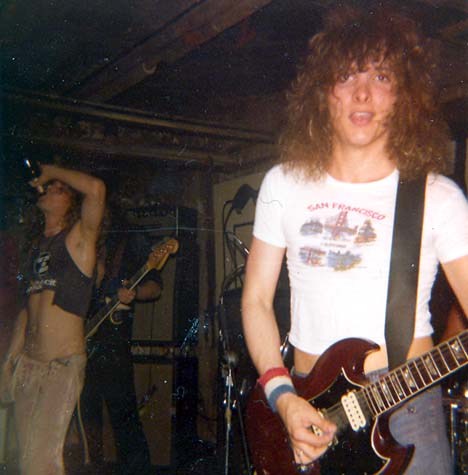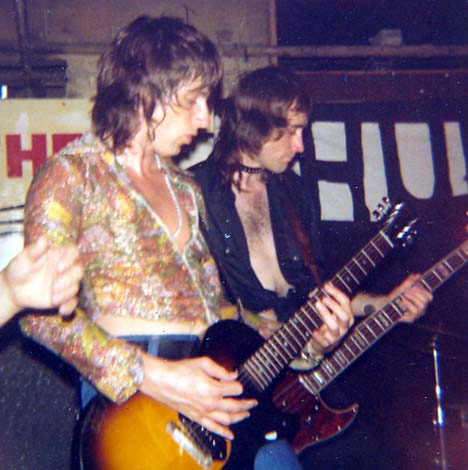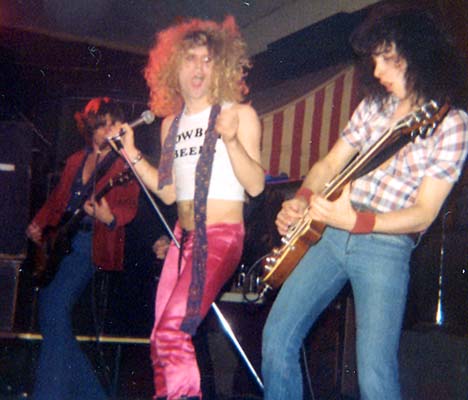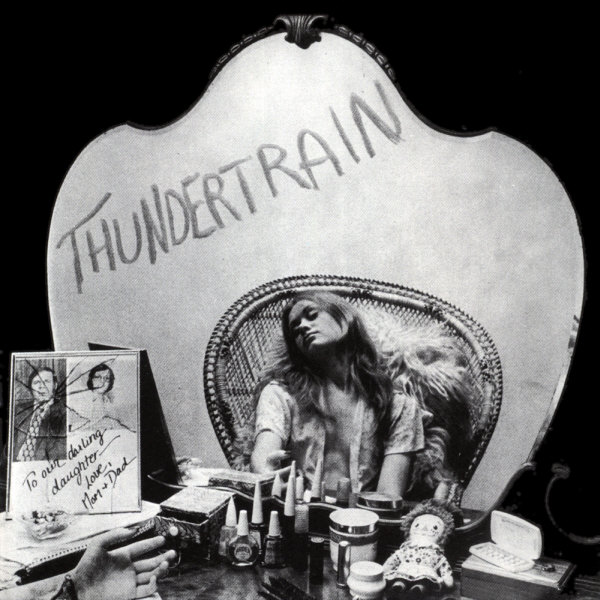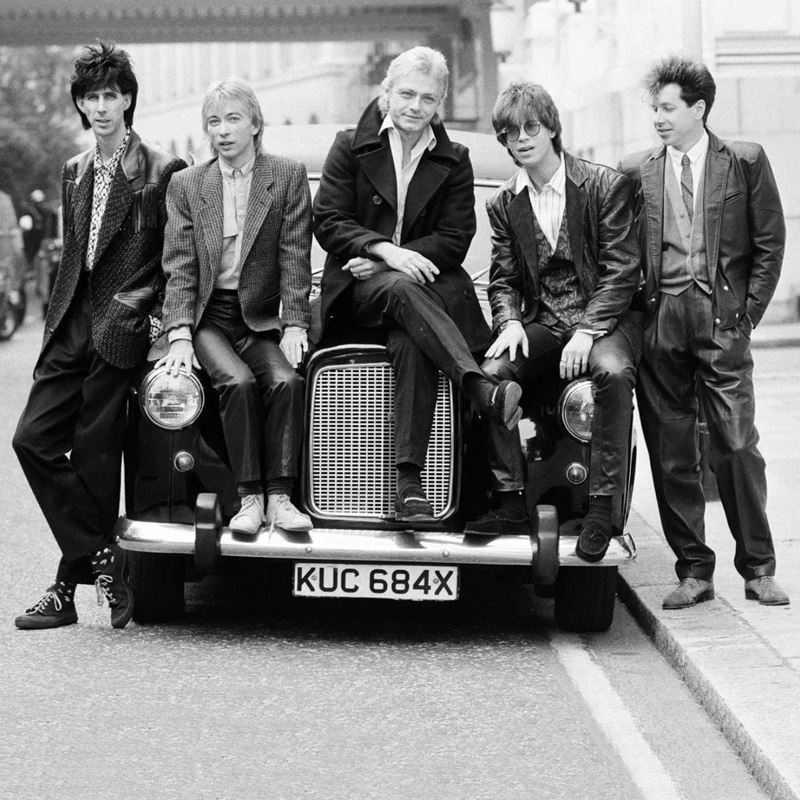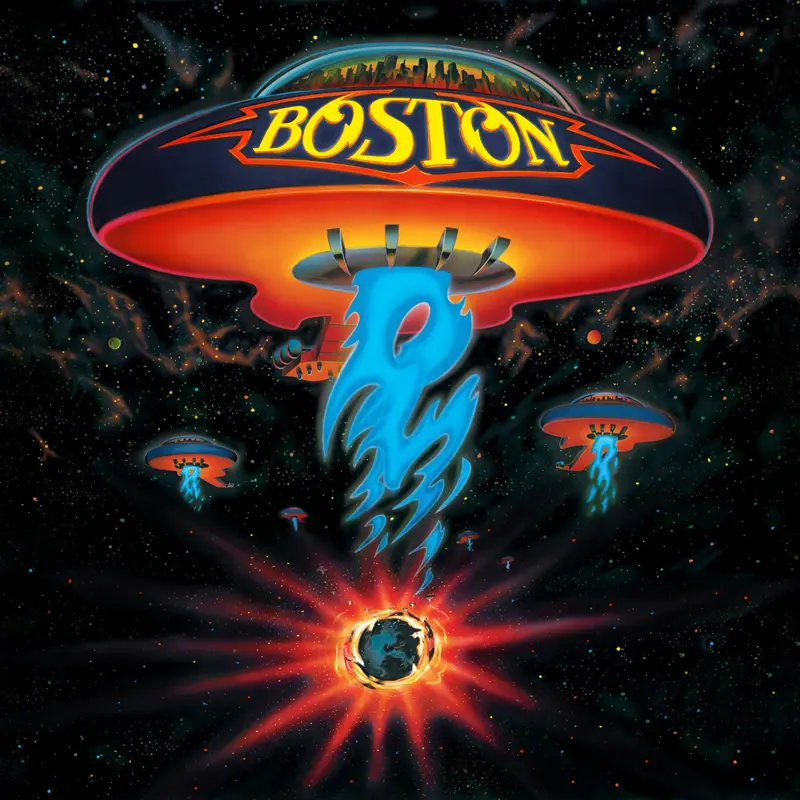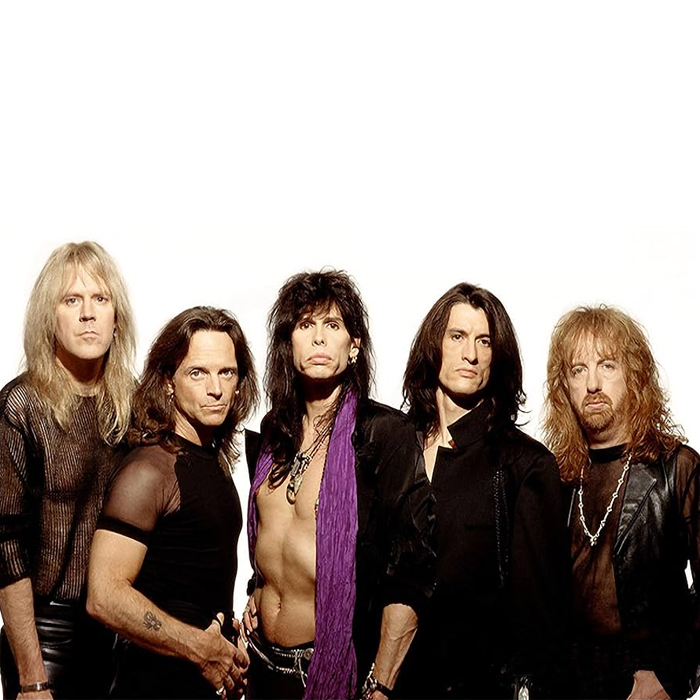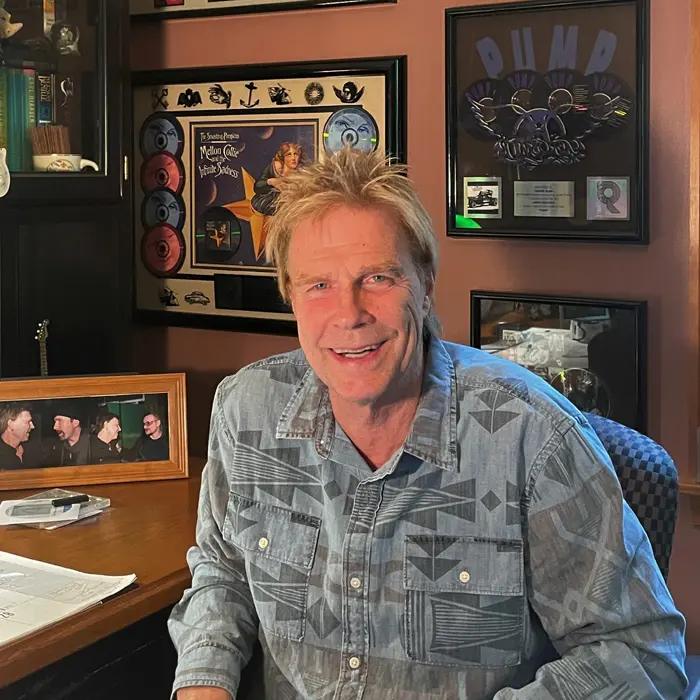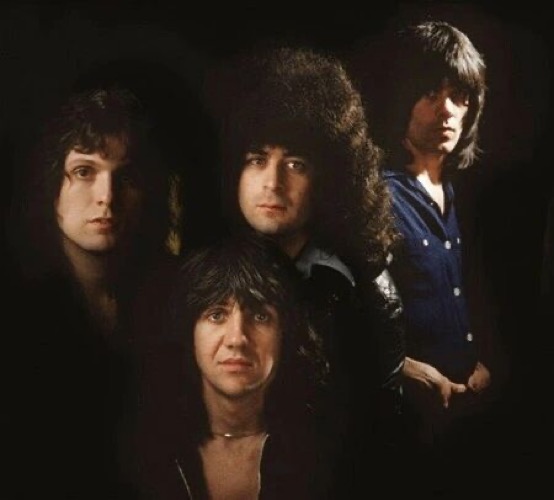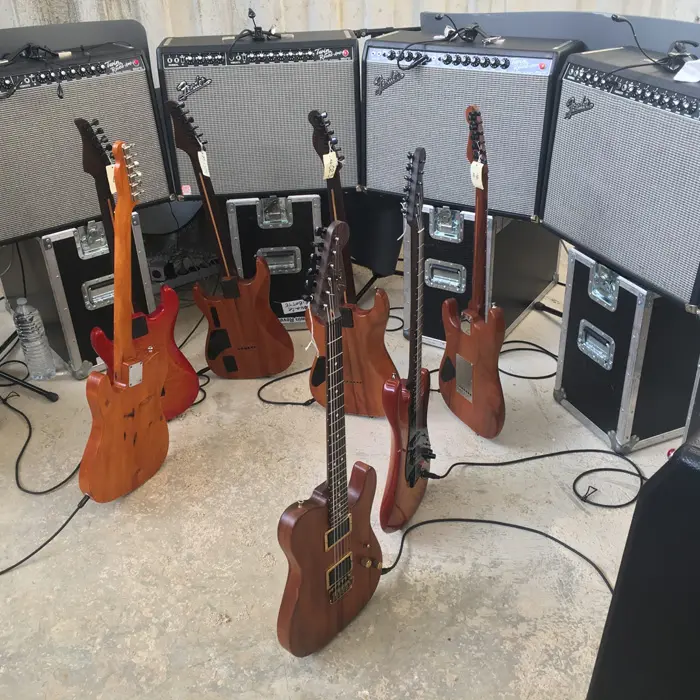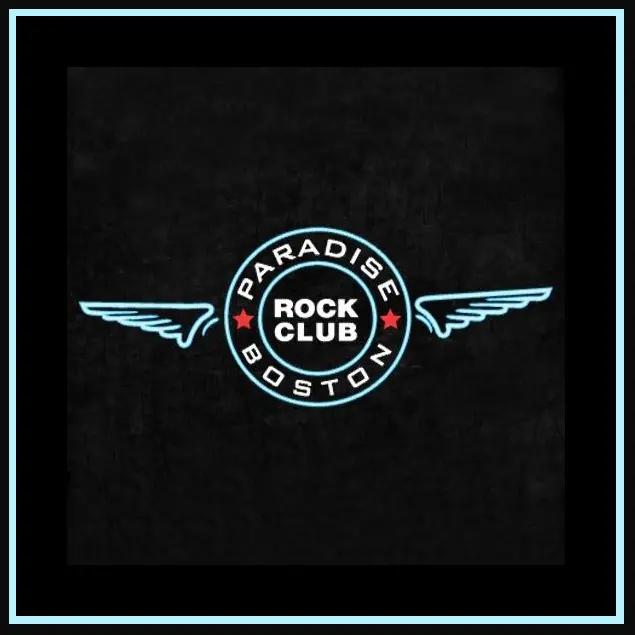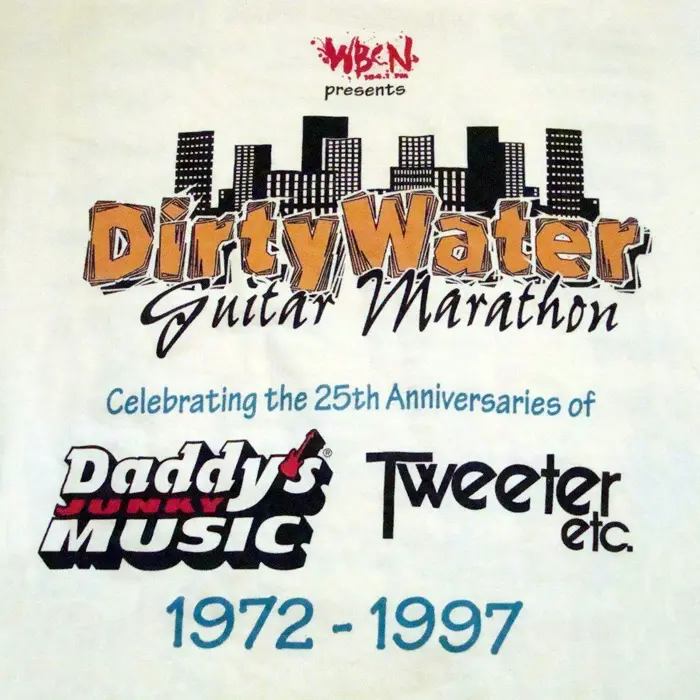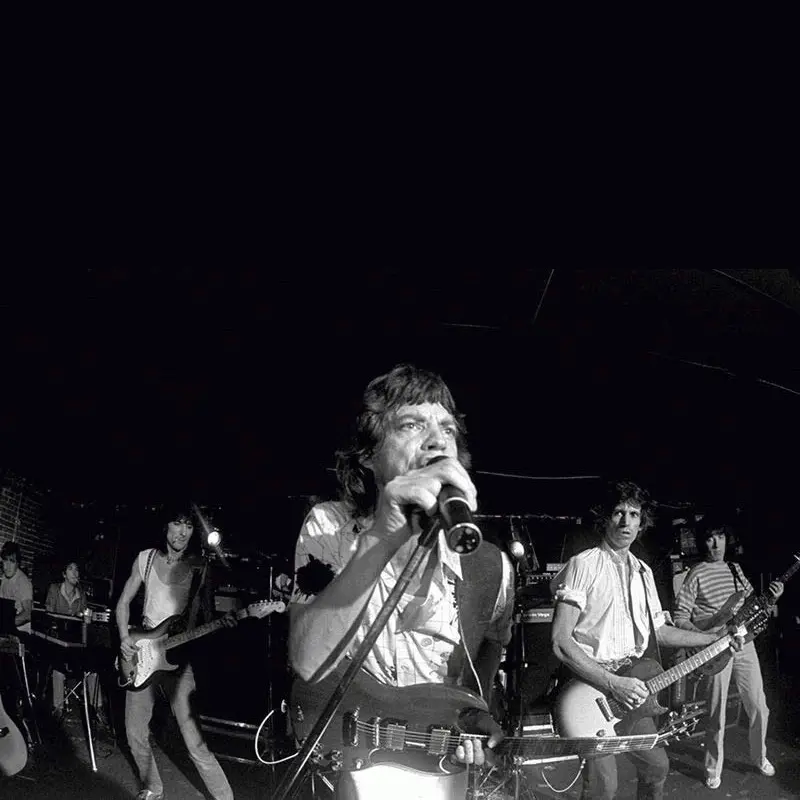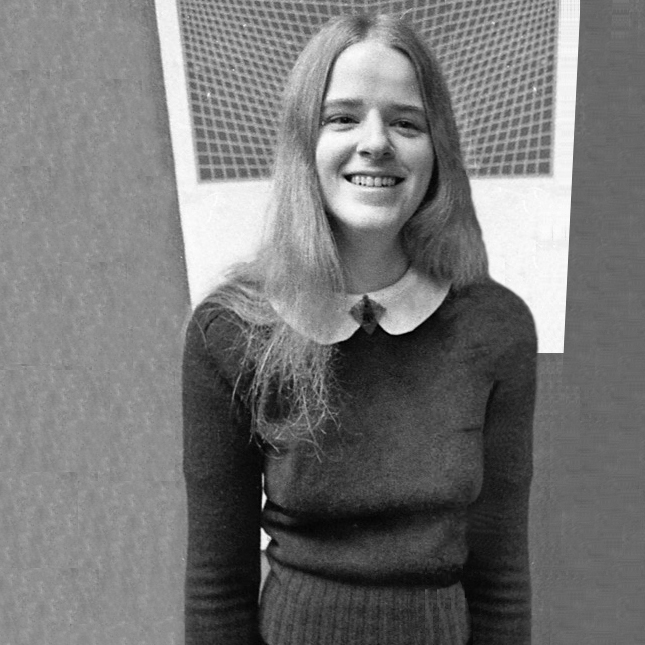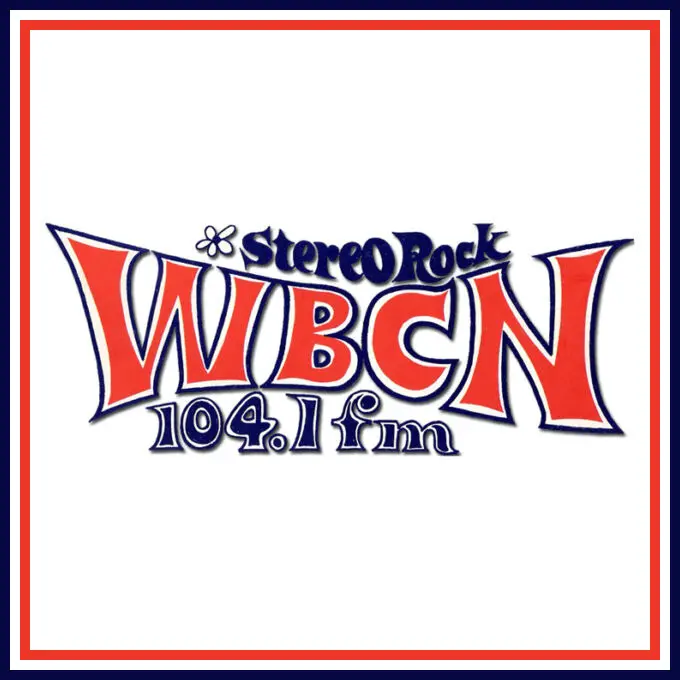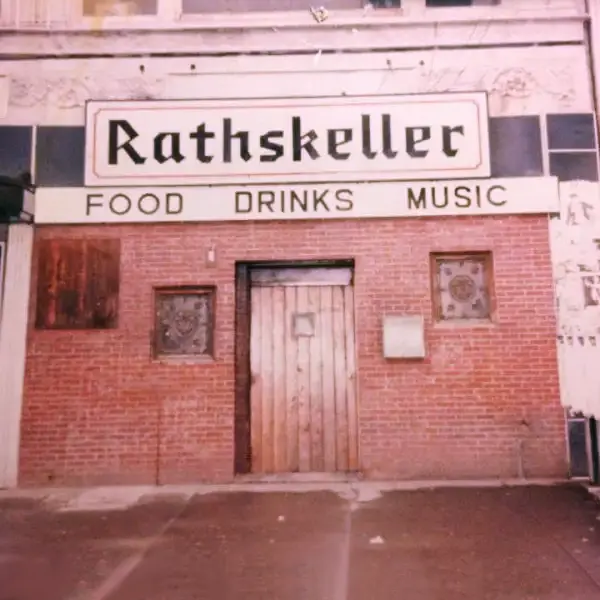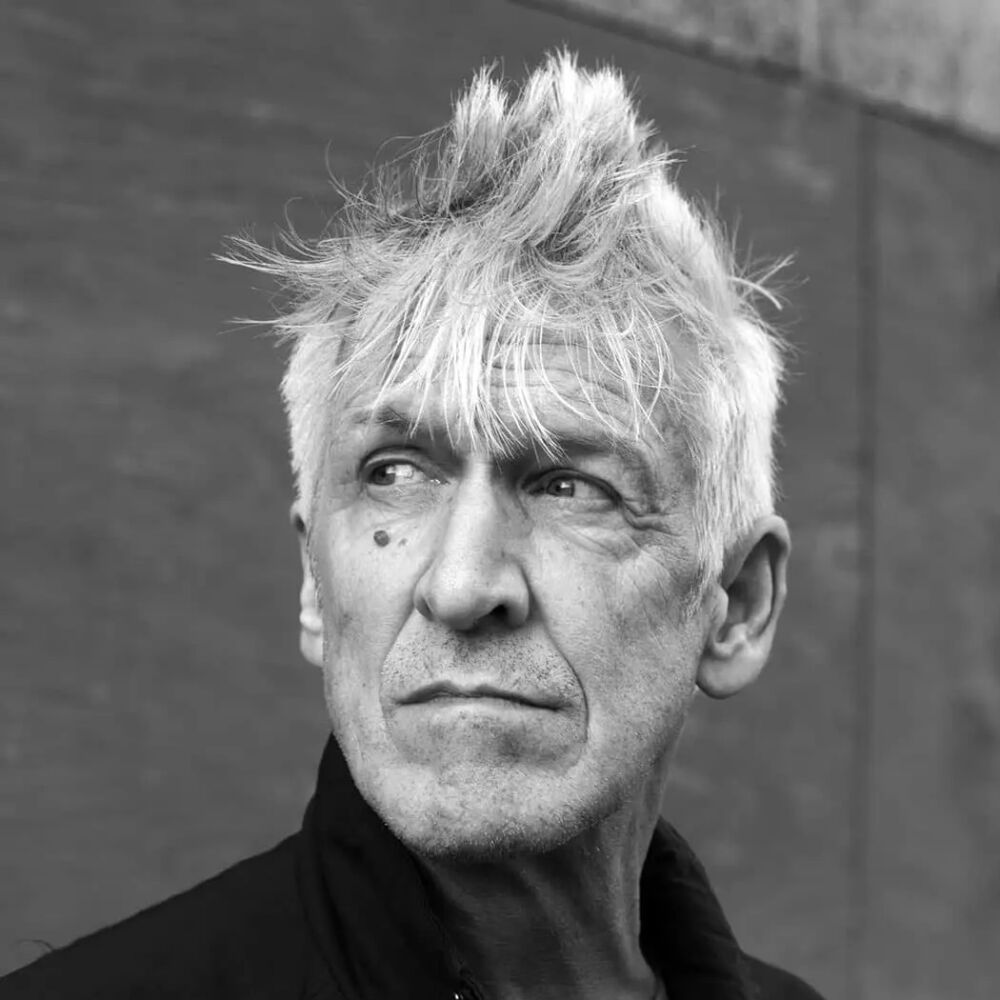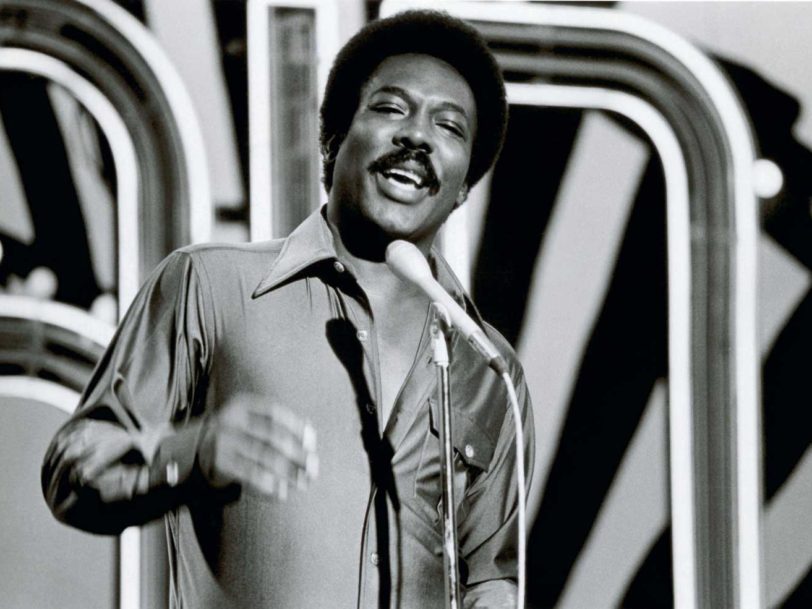Thundertrain
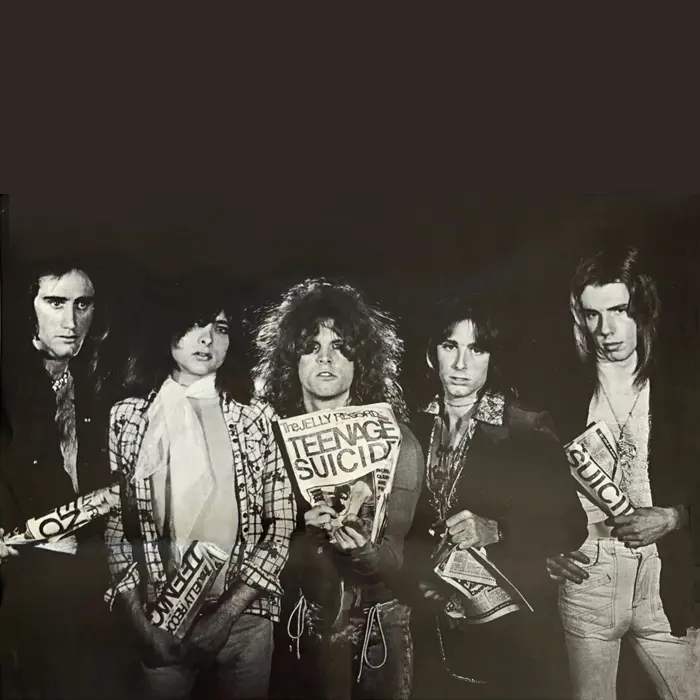
Why Thundertrain never rumbled its way into the American adolescent consciousness back in 1977 has always been mystifying. The group, which was based in Massachusetts’ Metrowest at the time, seemed destined to attract attention from the vast army of blue-jeaned rock fans coast to coast who’d fallen hard for Aerosmith when Toys in the Attic became a national best-seller two years earlier.
Thundertrain possessed the same hard-rockin’ blues swagger of their famous brethren: full of attitude and decked out in denim and leather, they were poised on the brink of a major breakthrough. They rehearsed relentlessly, put together a killer show, sold out clubs and mid-sized halls, recorded an album and had enthusiastic support from the New England media. Despite holding all these face cards, however, the expected pot was never theirs to collect. Thundertrain watched enviously as Elektra signed The Cars, Paul Stanley of KISS plucked New England for a major label debut and Boston came out of nowhere despite never playing a single note in any of the city’s many nightclubs.
FORMATION
The best place to begin in telling Thundertrain’s story is probably with lead singer Mach Bell, an irrepressible ball of energy who took lip from nobody and assumed command at virtually every venue he ever played. Growing up in Holliston, Massachusetts in the ‘60s, he absorbed the rock emanating from Top 40 radio – Paul Revere and The Raiders, The Standells, The Monkees, The Rolling Stones – and mixed in an essential dose of R&B from legendary singers like James Brown, Wilson Pickett and The Isley Brothers. Bell played guitar and sang lead in a band called Piggies before joining drummer Bobby Edwards’ group Biggy Ratt. The restless frontman eventually quit and headed west to Los Angeles in ‘74 to try his luck in the glam scene that was raging in the city at the time. In Bell’s absence, Edwards connected with two brothers from Natick, guitarist Gene and bassist Ric Provost. Thundertrain was born when the wayward lead singer returned from his steady Sunset Strip diet of Ziggy rock in ’75 and the final lineup gelled once lead guitarist Steve Silva joined later that year.
The band started booking gigs anywhere they could, but the Boston scene and its network of clubs was expanding rapidly and shows became plentiful. To add a measure of mystique, the group claimed to be from New York City for its first year and the members raided their girlfriend’s wardrobes to add that glam touch (a la The New York Dolls) to their standard black-and-blue hard-rock uniforms. Thundertrain peddled and pummeled its metal ditties of thigh-school love and lust with a basic two-guitar, bass and drums attack that also, surprisingly, featured a generous share of hooks to hang a hit on.
SINGLES, LIVE AT THE RAT, TEENAGE SUICIDE
In 1975 the band released a barely professional indie single, “I’m So Excited” b/w ”Cindy Is a Sleeper,” selling it at their shows. They became a regular act at Boston’s nascent punk club The Rathskeller that same year, the group’s hard rock being readily accepted by those who frequented the dark basement depths in Kenmore Square to hear everything from the buzz-sawing Ramones to the quirky Talking Heads. Bell and the boys put together a far better effort for their second single, “Hot for Teacher” b/w ”Love the Way,” with Willie “Loco” Alexander, widely considered to be the Godfather of Boston’s punk scene, guesting on piano, immeasurably increasing the band’s street cred. WBCN’s Maxanne, the deejay who’d discovered and pushed Aerosmith out over the airwaves four years earlier, began featuring “Hot for Teacher” on her show.
Thundertrain established its preeminence on the Boston music scene in ‘77 when they were included on the landmark recording Live at the Rat, which featured the top talent that appeared on the club’s legendary (and sticky) stage. The group also recorded Teenage Suicide, a nine-track LP released by Lexington-based Jelly Records, while billing themselves as “Unchained and Shameless” and “The Harley-Davidson of Rock and Roll.” Thundertrain headlined shows all over New England including the prestigious Paradise Theater (now the Paradise Rock Club), which artists including Bob Weir, Rick Derringer, Patti Smith and Lou Reed frequented.
DISBANDING, LATER ACTIVITY
But it all peaked there, after an expected deal with a major label failed to materialize; Atlantic took a good long look, but internal politics prevented them from signing the band, meaning Thundertrain’s moment passed in a flash. Within mere months, punk and hard rock had been overwhelmed by the new-wave scene with its hordes of keyboard-oriented bands battering the keepers of the six-strings and their Marshall stacks. As time wore on, the group’s odds grew longer and longer and by ’79 it was all over. The band morphed into The Hits minus guitarist Steve Silva and a year later, without Gene Provost, became Mag 4.
Since then, the players have gone their separate ways. Bell sang in the final lineup of The Joe Perry Project during the guitarist’s absence from Aerosmith and fronted a few Boston outfits afterward, but Thundertrain was always his main passion – even after they broke up. The group did a string of reunion shows 30 years after splitting up and managed to bring their magnificent noise back out in full force. It was a poignant reminder that Thundertrain was the complete package back in ’77: trashy and tight on stage, solid in the studio and darlings of the press – ripe for the taking! According to many, the failure of the music business to realize and act on that meant that Bell, Silva, the Provost brothers and (now the late) Bobby Edwards were robbed.
Those who want to know more about what America missed can check out the 2003 Gulcher Records expanded re-issue of Teenage Suicide or one of the three books the ever-industrious Bell has written about the band, beginning with 2019’s Once a Rocker, Always A Rocker: A Diary.
(by Carter Alan)
Carter Alan is a former WBCN deejay now heard on WZLX-FM in Boston. He’s the author of Outside is America: U2 in the U.S. (Faber & Faber, 1992), U2: The Road to Pop (Faber & Faber, 1997), Radio Free Boston: The Rise and Fall of WBCN (University Press of New England, 2013) and The Decibel Diaries: A Journey Through Rock in 50 Concerts (University of New England Press, 2017).

